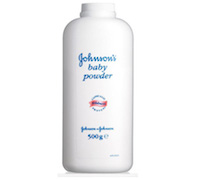
Boyd-Bostic’s case alleges that asbestos found in Johnson & Johnson’s talc power caused her to develop mesothelioma; in this case resulting in an incredibly rare cancer of the lining around her heart. She died in 2017 at the young age of just 30.
The possible link between mesothelioma and talc products has added a scary new chapter in the battle over a product that has been a healthcare staple in homes for decades. Initially limited to women who used feminine hygiene products like Shower to Shower over a long term, claims of talc-linked ovarian cancer diagnoses sent shockwaves through thousands of households across the country. The asbestos claim, however, greatly expands the pool of those who could possibly be affected and, logically speaking, would include babies and their families as well as the elderly. Exposure to asbestos fibers is a serious health risk and if the products were indeed found to have been responsible for introducing asbestos into consumers’ homes, the effects of such a disclosure would be felt for years to come.
This is not the first lawsuit faced by Johnson & Johnson over a talc-linked asbestos claim, and the corporation suffered a punishing defeat in a prior verdict regarding the topic. Earlier this year a jury awarded a New Jersey man and his wife $37 million in compensatory damages and an additional $80 million punitively when it decided that Johnson & Johnson talc did, in fact, contain asbestos and caused the man to develop mesothelioma. The case is currently under appeal.
Johnson & Johnson lawyers are vigorously fighting the claims in Boyd-Bostic’s case; among which is the accusation that the corporation has known about the presence of asbestos in its talc since the 1970s and chose to keep that information hidden from the public. The company asserts that Boyd-Bostic’s mesothelioma must have been contracted via other means and stated categorically that “that’s because [its talc powder] does not contain asbestos.”
The accuracy and truthfulness of such a statement will, yet again, likely be left to a jury to decide.
